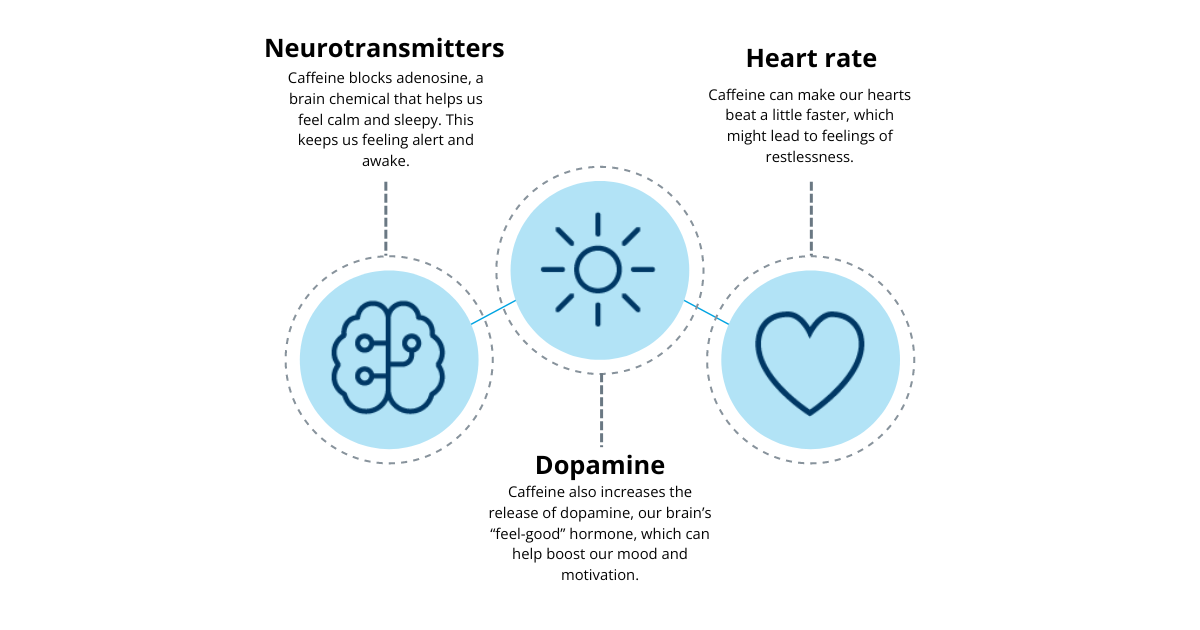Caffeine is a known stimulant to many of us, found in coffee, tea, and energy drinks. It’s often our go-to for that extra boost of alertness or to help us stay focused throughout the day. But how does it interact with ADHD? In this post, we’ll explore the relationship between caffeine and ADHD, look at both the benefits and drawbacks, and discover how caffeine can influence the mind and body.
How does caffeine affect ADHD?
For those with Attention-Deficit/Hyperactivity Disorder (ADHD), caffeine’s effects can be a bit of a mixed bag. While it offers some benefits, it also comes with its own challenges.
Some of the potential benefits of caffeine:
-
- Improved focus and alertness: Caffeine gently wakes the central nervous system, which can help sharpen focus and concentration.
- Temporary relief from ADHD symptoms: Some people with ADHD find that a cup of coffee or tea can help them feel a bit more organised or in control, even if it’s just for a short time.
- Boosted task performance: Caffeine can improve cognitive functions, such as working memory and attention, which are often areas of struggle for those with ADHD.
The potential downsides of caffeine:
-
- Overstimulation: Too much caffeine can lead to feeling jittery or restless, which might make ADHD symptoms even more noticeable.
- Disrupted sleep: Because caffeine can linger in our system, it can interfere with sleep, causing difficulties with falling or staying asleep. And for those with ADHD, good sleep is essential.
- Dependency and withdrawal: It’s easy to rely on caffeine regularly, but this can lead to withdrawal symptoms like headaches or irritability when the caffeine wears off.
- Unpredictable effects: Not everyone with ADHD reacts to caffeine in the same way. What helps one person might not work or could even worsen things for another.
How caffeine impacts our mind and body
Caffeine works its magic by influencing how our brain communicates and how certain hormones are release.

It’s important to remember that while caffeine’s effects can be helpful in the moment, they are often temporary. Over time, regular caffeine use can lead to tolerance, meaning you may need more to feel the same benefits.
A personalised approach
The relationship between caffeine and ADHD is unique to each person. While some may find short-term relief with a little caffeine, others might experience more negative side effects like overstimulation or disrupted sleep.
If you or a loved one is considering incorporating caffeine into an ADHD management plan, it’s important to weigh the pros and cons carefully. Many alternative treatments and lifestyle changes can be just as effective, if not more so in managing ADHD.
Ultimately, finding what works best for ADHD is a personal journey, and it’s okay to take the time to explore different strategies to support focus, energy, and well-being.
Get support with Aim Forward
If you’re navigating ADHD and wondering how caffeine or other strategies could fit into your unique journey, we’re here to help. Our compassionate support team is ready to listen, answer your questions, and guide you toward personalised solutions.

